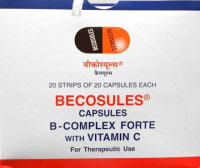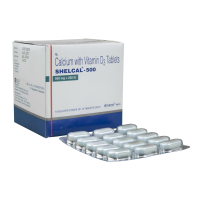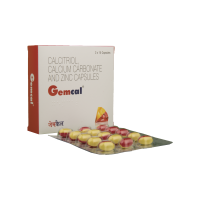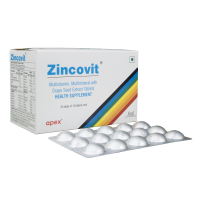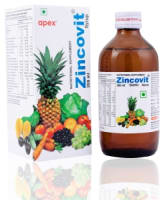USED FOR:
Allergic disorders
COMPOSITION:
Clobetasol Topical (0.05% w/w)
Lactic Acid (12% w/w)
Therapeutic Uses:
derma

No interaction found

WEIGH RISKS VS BENEFITS
Lac Soft C Gel may be unsafe to use during pregnancy.Animal studies have shown adverse effects on the foetus, however, there are limited human studies. The benefits from use in pregnant women may be acceptable despite the risk. Please consult your doctor.

Lac Soft C Gel is probably safe to use during lactation. Limited human data suggests that the drug does not represent a significant risk to the baby.The baby's skin should not come into direct contact with the treated area of skin. Water-miscible cream/gel is preferred as ointments may expose the baby to harmful effects of Lac Soft C Gel via licking.

SAFE
Lac Soft C Gel does not usually affect your ability to drive.

There is limited information available on the use of Lac Soft C Gel in patients with kidney disease. Please consult your doctor.

There is limited information available on the use of Lac Soft C Gel in patients with liver disease. Please consult your doctor.
Uses of Clobetasol Topical
Clobetasol Topical is used in the treatment of allergic disorders.
How to use Clobetasol Topical
Use this medicine in the dose and duration as advised by your doctor. Check the label for directions before use. Apply it on the affected area and allow it to stay before spitting or rinsing.
How Lac Soft C Gel works
Clobetasol Topical is a topical corticosteroid (anti-inflammatory medicine). It works by reducing redness, itching, and swelling caused by various skin conditions.
Common Skin thinning, Contact dermatitis.
Q. Is Clobetasol Topical a steroid?
Clobetasol Topical is a potent topical corticosteroid used for the treatment of itching, redness, dryness, inflammation, and discomfort of various scalp and skin conditions.
Q. Is Clobetasol Topical used for treating hair loss?
Clobetasol Topical is used for the treatment of various scalp and skin conditions; however, it is not used for the treatment of hair loss. Talk to your doctor if you need treatment for hair loss.
Q. Does Clobetasol Topical cause hair loss?
Long-term use of steroids may damage your hair, causing hair loss especially when you use an airtight dressing. Always follow the advice of your doctor regarding its use and talk to your doctor in case you have hair loss while using Clobetasol Topical.
Q. Is Clobetasol Topical good for acne?
Clobetasol Topical is not be used for the treatment of acne. Talk to your doctor if you need any treatment for acne.
Q. What is Clobetasol Topical?
Clobetasol Topical belongs to a group of medicines called topical corticosteroids. It helps to reduce the redness and itchiness of certain skin problems.
Q. What is Clobetasol Topical used for?
Clobetasol Topical is used to help reduce the redness and itchiness in certain skin problems like relapsing eczema, psoriasis, lichen planus, dermatitis and other skin conditions that have not responded to milder steroid creams or ointments.
Q. Is Clobetasol Topical good for athlete's foot/ ringworm?
Clobetasol Topical is not be used for conditions like athlete's foot or ringworm. Please talk to your doctor for the treatment of your condition.
Q. Is Clobetasol Topical an antifungal drug?
Clobetasol Topical is not an antifungal drug. It is a topical corticosteroid.
Q. Does Clobetasol Topical cause thinning of skin?
Thinning of skin is an uncommon side effect of Clobetasol Topical. It may also cause stretch marks. Talk to your doctor if you experience these side effects while using Clobetasol Topical.
Uses of Lactic Acid
Lactic acid is used externally for the treatment of dry, scaly skin (xerosis), ichthyosis vulgaris (a skin condition that causes dry, dead skin cells to accumulate in patches on the surface of your skin) and temporary relief of itching associated with these conditions.
How to use Lactic Acid
Use this medicine in the dose and duration as advised by your doctor. Check the label for directions before use. Apply it on the affected area and allow it to stay before spitting or rinsing.
Common Application site tingling, Burning sensation, Skin redness, Irritation.
Expert advice for Lactic Acid
Avoid contact with eyes, lips and mucous membranes.
Take precautions to avoid swallowing lactic acid.
Avoid application to sensitive, inflamed or irritated skin as a mild stinging, burning or peeling may occur.
Seek immediate medical attention if you experience irritation or any other symptoms of allergy.• Avoid direct exposure to sun or use protective clothing as lactic acid may increase sensitivity to sun.
Tell your doctor if you are pregnant, planning to be pregnant or are breastfeeding.
Do not take if allergic to lactic acid or any of its ingredients
Q. Is Lactic Acid vegan/strong acid/toxic/dairy/dairy free or present in milk?
Lactic Acid is nontoxic weak acid. It is present in milk
Q. Does Lactic Acid cause fatigue/ muscle soreness/ cramps/ burn fat?
Lactic Acid does not cause fatigue, muscle soreness, cramps or burns fat.


 Lac Soft C Gel
Lac Soft C Gel  Bookmark
Bookmark
